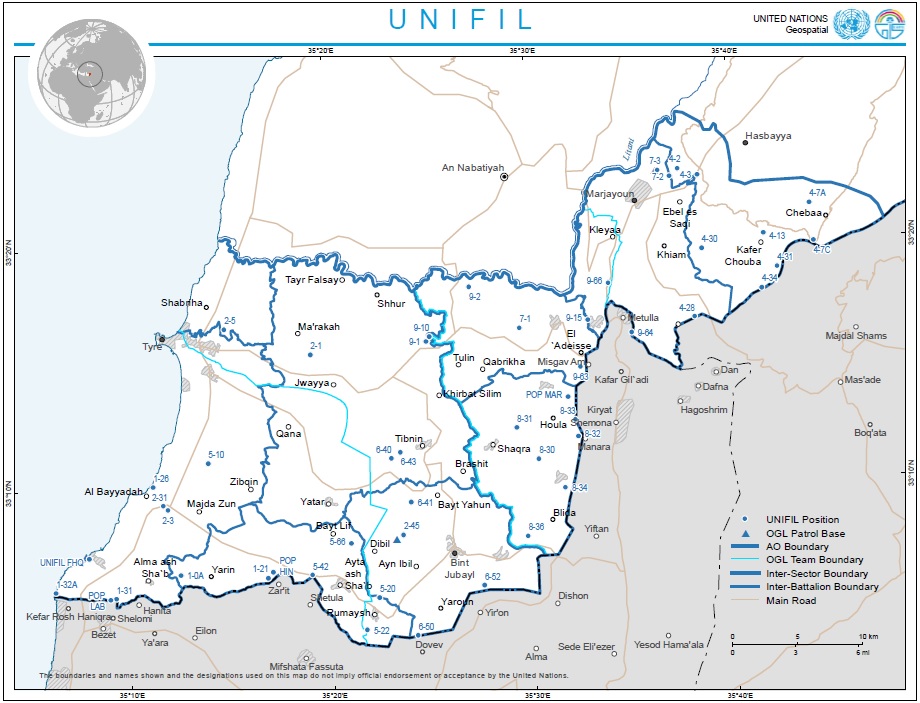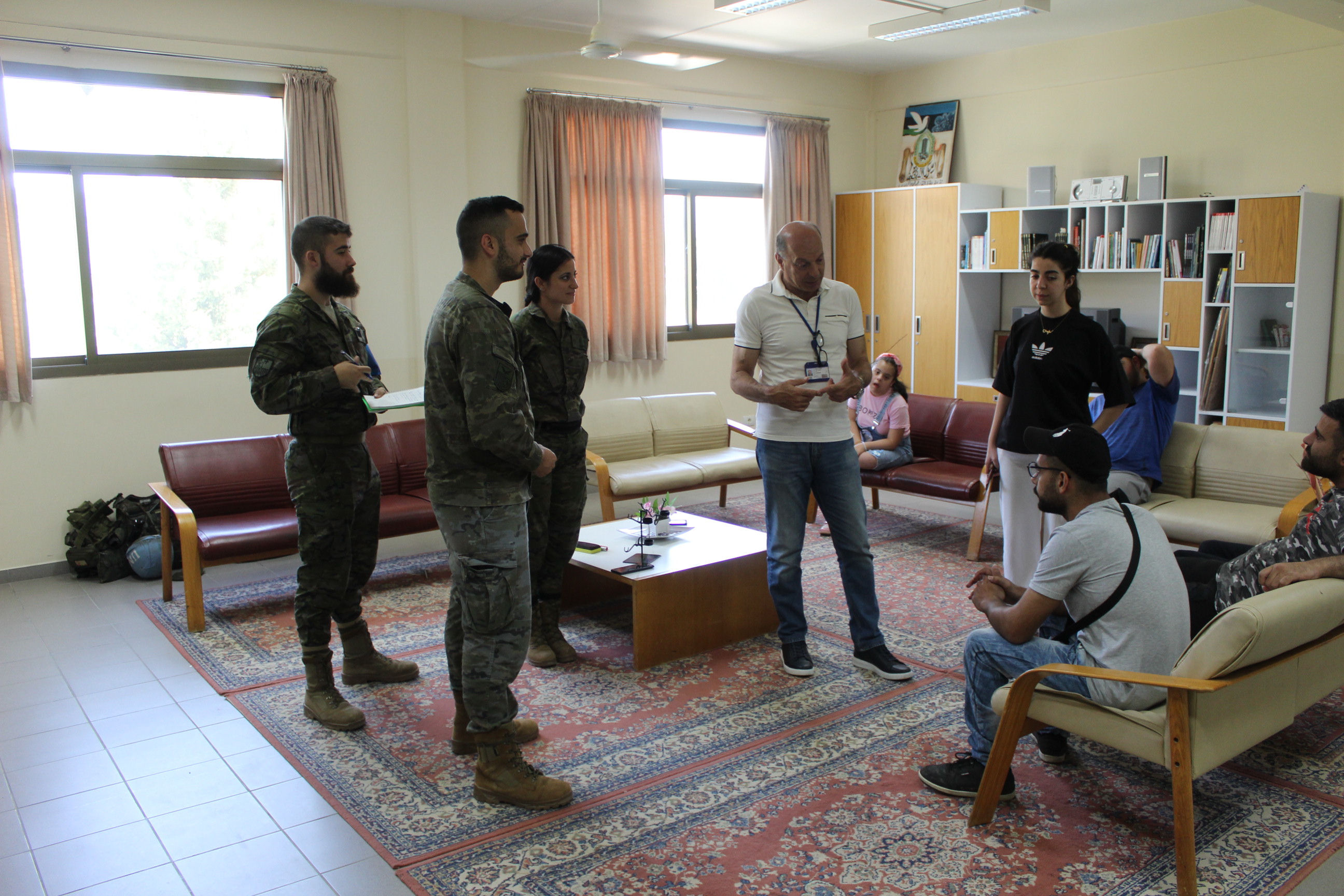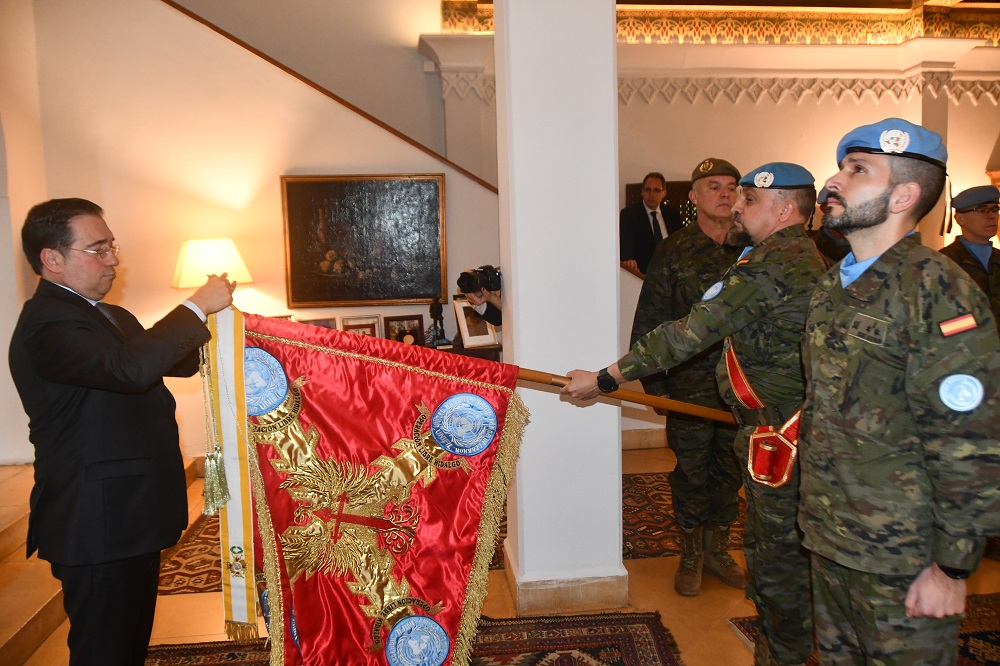
Operation 'Libre Hidalgo'
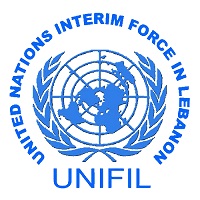
Originally, UNIFIL was created by the Security Council in March 1978 to confirm Israeli withdrawal from Lebanon, restore international peace and security and assist the Lebanese Government in restoring its effective authority in the area. The mandate had to be adjusted twice, due to the developments in 1982 and 2000.
Following the July/August 2006 crisis, the Council enhanced the Force and decided that in addition to the original mandate, it would, among other things, monitor the cessation of hostilities; accompany and support the Lebanese armed forces as they deploy throughout the south of Lebanon; and extend its assistance to help ensure humanitarian access to civilian populations and the voluntary and safe return of displaced persons.
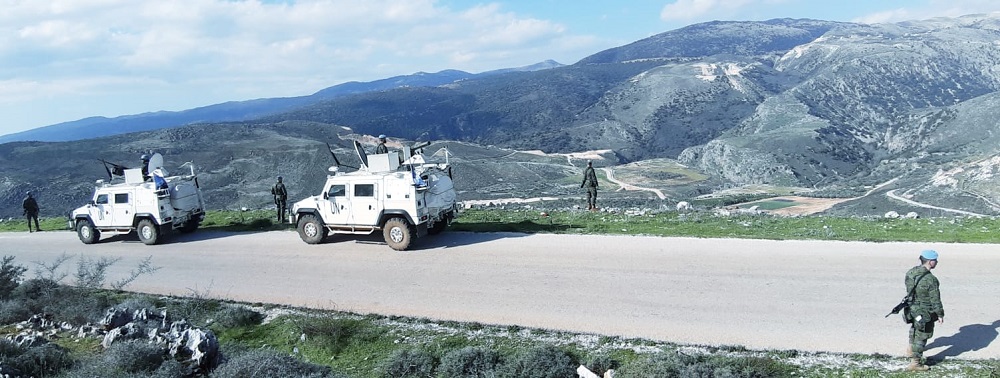
According to Security Council resolutions 425 (1978) and 426 (1978) of 19 March 1978, UNIFIL was established to:
- Confirm the withdrawal of Israeli forces from southern Lebanon.
- Restore international peace and security.
- Assist the Government of Lebanon in ensuring the return of its effective authority in the area.
According to Security Council resolution 1701 (2006) of 11 August 2006, UNIFIL, in addition to carrying out its mandate under resolutions 425 and 426, shall:
- Monitor the cessation of hostilities.
- Accompany and support the Lebanese armed forces as they deploy throughout the South, including along the Blue Line, as Israel withdraws its armed forces from Lebanon.
- Coordinate its activities referred to in the preceding paragraph (above) with the Government of Lebanon and the Government of Israel.
- Extend its assistance to help ensure humanitarian access to civilian populations and the voluntary and safe return of displaced persons.
- Assist the Lebanese Armed Forces (LAF) in taking steps towards the establishment between the Blue Line and the Litani river of an area free of any armed personnel, assets and weapons other than those of the Government of Lebanon and of UNIFIL deployed in this area.
- Assist the Government of Lebanon, at its request, in securing its borders and other entry points to prevent the entry in Lebanon without its consent of arms or related materiel.
By this resolution, the Council also authorized UNIFIL to take all necessary action in areas of deployment of its forces and as it deems within its capabilities, to ensure that its area of operations is not utilized for hostile activities of any kind; to resist attempts by forceful means to prevent it from discharging its duties under the mandate of the Security Council; and to protect United Nations personnel, facilities, installations and equipment, ensure the security and freedom of movement of United Nations personnel, humanitarian workers and, without prejudice to the responsibility of the Government of Lebanon, to protect civilians under imminent threat of physical violence.
In its resolution 1773 (2007), the Security Council acknowledged the role played by UNIFIL and the LAF in helping to establish a new strategic environment in southern Lebanon and looked forward to increased cooperation between the two forces in the discharge of UNIFIL’s mandate. In resolution 2373 (2017), the Security Council called for an “accelerated” and “durable” deployment of the LAF in southern Lebanon and the territorial waters of Lebanon, and increased support of and coordination with the LAF. It also asked for enhanced reporting to the Council on UNIFIL’s activities. In line with resolutions 2433 (2018) and 2485 (2019), LAF and UNIFIL efforts in the framework of the Strategic Dialogue are currently focused on the deployment of the LAF Model Regiment in UNIFIL’s area of operation and the development of a strategy for a phased transition of the responsibilities of Maritime Task Force to the Lebanese Navy.
At the request of the Government of Lebanon, the UNIFIL mandate is renewed annually by the Security Council.
On August 31th, 2023, the UN Security Council passed Resolution 2695 extending UNIFIL's mandate until August 31st, 2024.
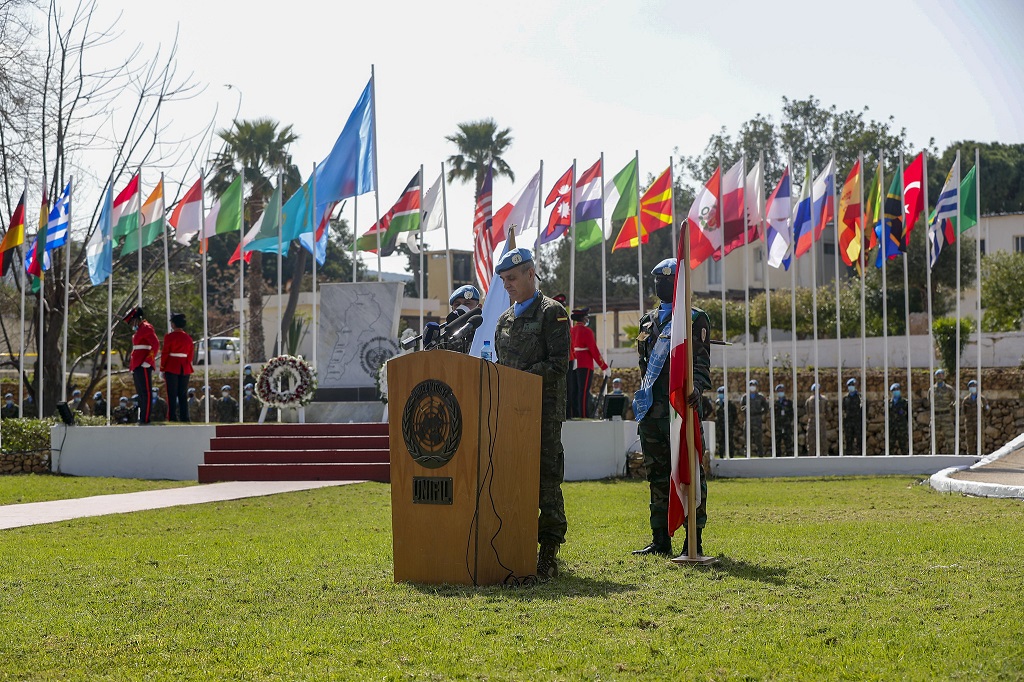
United Nations Secretary-General António Guterres announced on February the 5th, the appointment of Major General Aroldo Lázaro Sáenz of Spain as Head of Mission and Force Commander of the United Nations Interim Force in Lebanon (UNIFIL).
Major General Lázaro Sáenz succeeds Major General Stefano Del Col of Italy.
Major General Lázaro Sáenz has had a long and distinguished career in the Spanish Army, currently serving as Adviser to the Ministry of Defence for Defence and Security cross-cutting affairs. He has since 2000 served in EUROFORCE Headquarters (Florence), NATO Rapid Deployable Corps Spain (Valencia), Spanish Brigade “Guzmán el Bueno” (Cordoba) in three assignments, Brigade Commander, Regiment Commander and Chief of Staff.
Major General Lazaro was promoted to Lieutenant General on 30 October 2023 and is expected to continue to lead UNIFIL until February 2025.
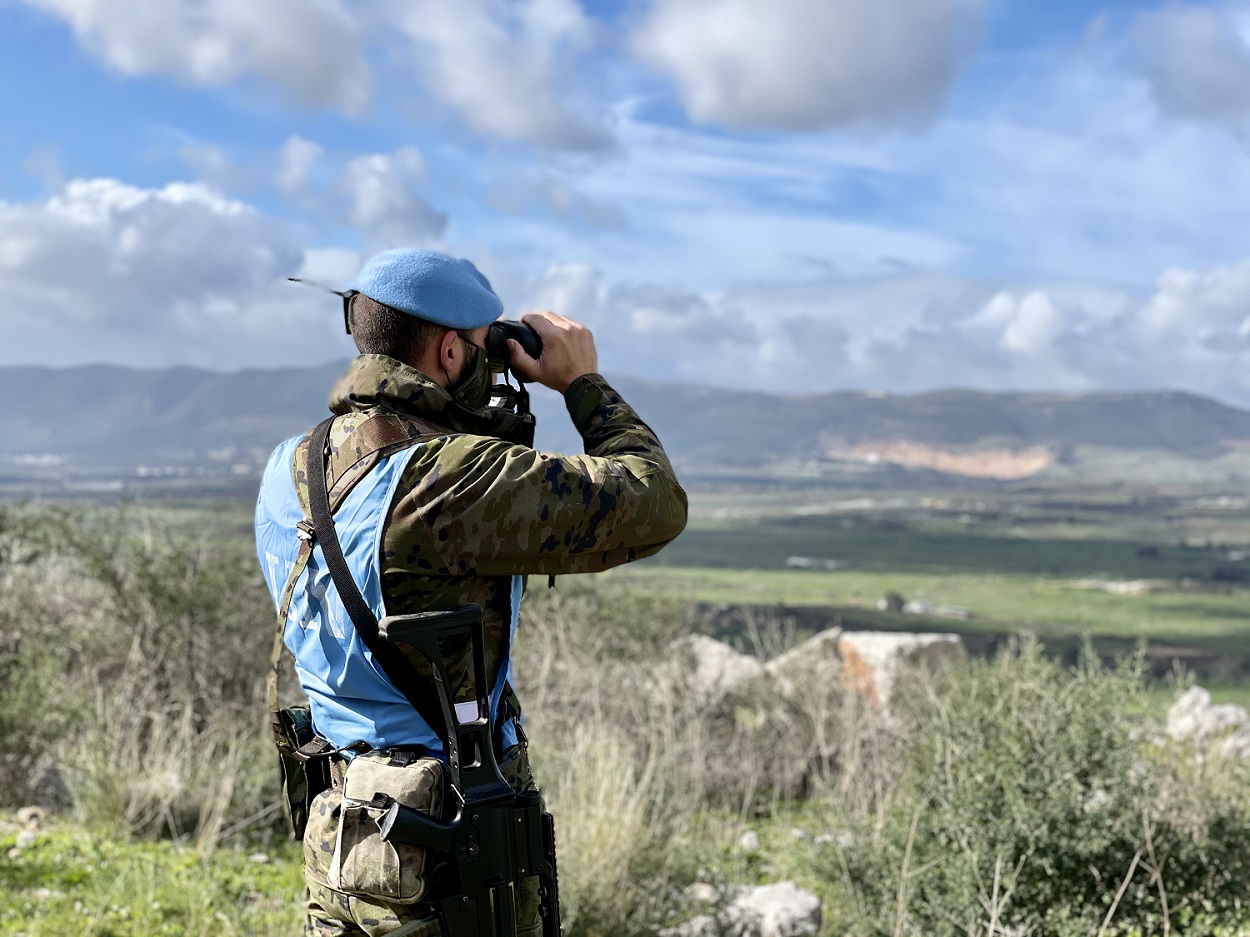
In the early 1970s, tension along the Israel-Lebanon border increased, especially after the relocation of Palestinian armed elements from Jordan to Lebanon. Palestinian commando operations against Israel and Israeli reprisals against Palestinian bases in Lebanon intensified. On 11 March 1978, a commando attack in Israel resulted in many dead and wounded among the Israeli population; the Palestine Liberation Organization (PLO) claimed responsibility for that raid. In response, Israeli forces invaded Lebanon on the night of 14/15 March, and in a few days occupied the entire southern part of the country except for the city of Tyre and its surrounding área.
On 15 March 1978, the Lebanese Government submitted a strong protest to the Security Council against the Israeli invasion, stating that it had no connection with the Palestinian commando operation. On 19 March, the Council adopted resolutions 425 (1978) and 426 (1978), in which it called upon Israel immediately to cease its military action and withdraw its forces from all Lebanese territory. It also decided on the immediate establishment of the United Nations Interim Force in Lebanon (UNIFIL). The first UNIFIL troops arrived in the area on 23 March 1978.
Until July 2006, the situation remained stable, but then new hostilities began between the two countries. After intense negotiations, the UN Security Council approved a considerable increase in the number of UNIFIL troops, from 2.000 to 15.000, and expanded its command.
In the UN's strategic review of the mission in 2012, which stated that the mission's objectives were practically consolidated, the number of troops was greatly reduced.
The UN mission in Lebanon has among its tasks to monitor the cessation of hostilities between Hezbollah and Israel and to accompany and assist the LAF in the south of the country and along the separation between the two states, the so-called Blue Line. It also guarantees humanitarian access to civilian populations and the voluntary and safe return of displaced persons.
The mission is currently immersed in what is known as the stabilization phase, in which it is intended that the Lebanese Armed Forces (LAF) are able to monitor the situation without UNIFIL's presence.
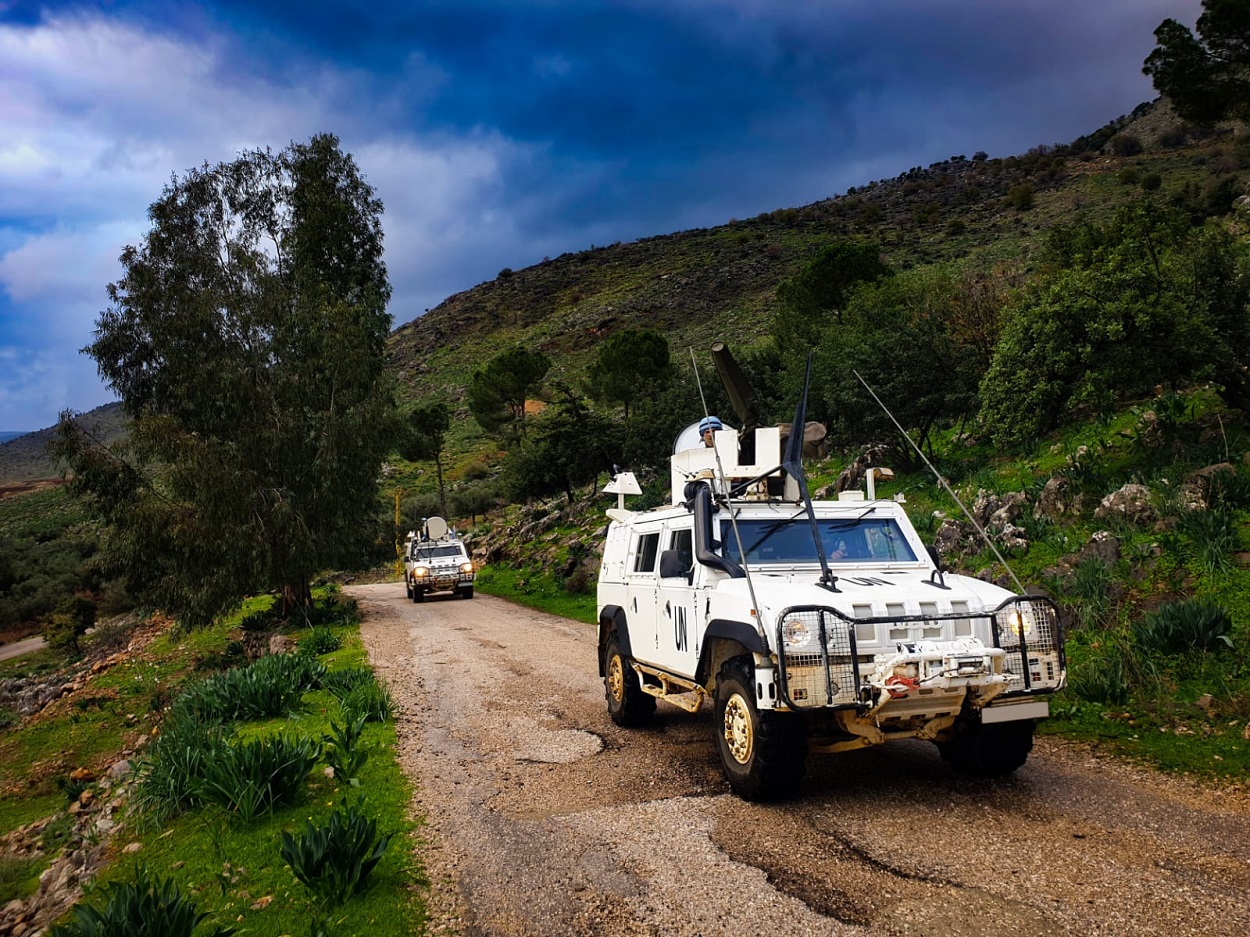
The Spanish Armed Forces were deployed in Lebanon in September 2006. Mostly the entire contingent in operation 'Libre Hidalgo' is located at the Miguel de Cervantes Base, near the town of Marjayoun where the Spanish-led Eastern Sector Headquarters is located. There are also spanish personnel at the UNIFIL´S Headquarters in Naquora.
Spanish troops carry out foot and vehicle patrols to permanently monitor the line that separates Lebanon from Israel. they also set observatories and carry out other activities along with the Lebanese Armed Forces (LAF), all of the aimed at ensuring compliance with UN Resolution 1701 and preventing situations tha could lead to escalate the tensión between the parties.
The Multinational Brigade East, led by Spain and commanded by a Spanish General, is composed of 3500 troops of nine different nationalities. Spain contributes with roughly 650 troops to UNIFIL. Spain has positions assigned within UNIFIL's HQ (FHQ) in Naquora.
Videos about Spain's involvement within UNIFIL
A short briefing on UNIFIL missionYoutube video Exercise 'Angel Rescue'Youtube video 'Alfa' Task ForceYoutube video Exercise 'Steel Storm'Youtube video Spanish security unit at Base 'Miguel de Cervantes'Youtube video 'Miguel de Cervantes' Base's gymYoutube video Spanish Medal parade ceremony at Base 'Miguel de Cervantes'Youtube video Spanish K9 team in LebanonYoutube video A journey with Guardia Civil in LebanonYoutube video ESP CHOD visits Lebanon and Spanish troops deployed within UNIFILYoutube video Spanish comrades honoring Corporal Soria Toledo (KIA)Youtube video UNIFIL's Force Commander visits Sector East HQYoutube video Air ops in LebanonYoutube video Army Engineers in LebanonYoutube video
2024
- May 17th. The Brigade 'Aragón' I lead BRILIB XLI.
2023
- November 24th. The Brigade 'Extremadura' XI takes over the leadership of the BRILIB XL.
- May 27th . Parachute Brigade 'Almogáraves VI' lead BRILIB XXXIX taking over the BRILIB XXXVIII.
2022
- November 24th . Brigade 'Rey Alfonso XIII', II of the Legion, lead BRILIB XXXVIII taking over the BRILIB XXXVII.
- August 31. UN Security Council passed Resolution 2650 extending UNIFIL's mandate until August 31st, 2023.
- May 30th. The handover ceremony is held between BRILIB XXXVI and BRILIB XXXVII, composed of units of the Brigade 'Guzmán el Bueno' X.
- April 11th.UNIFIL’s Force Commander presides over the UN medal ceremony for the spanish contingent, in Marjayoun.
- March 31st. UNIFIL's Force Commander pays first visit to the Sector East Multinational Brigade HQ at 'Miguel de Cervantes' Base, in Marjayoun.
- February 28th. Major general Aroldo Lázaro Sáenz takes over as new Force Commander and Head of Mission at UNIFIL's HQ in Naquora.
2021
- December 4. HOTO ceremony in Marjayoun. BRILIB XXXVI, made up of units from Brigade 'Canarias' XVI, handed over from BRILIB XXXV.
- August 30. UN Security Council passed Resolution 2591 extending UNIFIL's mandate until August 31st, 2022.
- June 4. Brigade 'Aragón' I, BRILIB XXXV, takes over the command of UNIFIL's Sector East.
- April 9. UNIFIL medal award ceremony is held at the 'Miguel de Cervantes' Base, with the attendance of Force Commander and Head of mission, MG de Col (ITA).
- March 4 and 5. Spain's CHOD visits Spanish troops deployed in Lebanon and UNIFIL Headquarters in Naquora.
- February 26. Spanish troops lead exercise 'RITEX' 1-21, conducted at 'Miguel de Cervantes' Base.
- February 17 and 18. The Spanish contingent deployed in Lebanon, collaborates with snow removal works and clearing of routes within Sector East.
2020
- December 10. Spanish contingent deplyed to Lebanon takes over. The 12th Brigade "Guadarrama" takes command of sector east.
- August 28. UN Security Council passed a Resolution extending UNIFIL's mandate until August 31st, 2021.
- July 20. BRILIB XXXIII takes Command of UNIFIL's Sector East. the new contingent is made up of personnel from BRIPAC. The HOTO has been delayed two months due to the COVID-19 pandemic.
2019
- November 23: The XXXII Lebanon Brigade on the basis of the “King Alfonso XIII” II Brigade of the Legion takes over from the XXXI Lebanon Brigade made up mostly by the XII “Guadarrama” Brigade. Brigadier General Marcos Llago is the Commander of the Spanish contingent and UNIFIL East Sector Commander.
- May 25. The 12th Brigade “Guadarrama” replaces the 7th Brigade “Galicia” at the Base “Miguel de Cervantes” in Marjayoun. The General Rafael Colomer Martínez del Peral is the new Chief of the Spanish contingent and of the UNIFIL (United Nations Interim Force in Lebanon) Sector East.
- April 8. Operation “Grey beret”. BRILIT´s engineers dismantle part of the old fence that separates Lebanon from Israel, for the sake of maintaining stability within the “Blue Line”.
2018
- November 21. The 1st Brigade “Aragón” is replaced by the 7th Brigade “Galicia” (BRILAT) at the Base Miguel de Cervantes in Markayoun. General Antonio Romero is the new Chief of the Spanish contingent and of the UNIFIL Sector East.
- August 7. The current “Head of Mission” and “UNIFIL Force Commander”, the Italian Major General Stefano del Col takes command.
- On May 23, the Spanish contingent is replaced, having as the source base unit the 1st Brigade “Aragón”, based in Zaragoza. The Brigadier General José Luis Sánchez Martínez-Falero is the current Chief of the Sector East and of the Spanish contingent. He will be in charge of the 29th Brigade Lebanon till next November.
2016
- September 15. 10th anniversary of the Spanish mission in UNIFIL. Spain reiterates its commitment with the mission.
2015
- January 28. The Corporal Francisco Javier Soria Toledo, member of the 10th BRI, passes away in the position UNP 4-28 due to a fire action between Hezbollah and Israel.
2012
- November. UNIFIL´s Strategic Review by United Nations. Spain was in charge of reassessing the necessities and it was agreed, in accordance with our allies, to reduce the contingent up to 600/700 soldiers.
2010
- January 28. The Spanish Major General Alberto Asarta Cuevas takes over leadership of the misión until 2012.
2007
- June 24. Six Spanish soldiers killed due to a terrorist attack.
2006
- November. The base Miguel de Cervantes is inaugurated.
- September 15. First Spanish troops disembark in Lebanon.
- September 7. The Congress of Deputies authorises sending Spanish forces to Lebanon in July. Crisis between Hezbollah and Israel.
EMAD PRESS RELEASES ON UNIFIL
-
Spanish contingent in Lebanon launches a new edition of the 'Bachiller Carrasco' program
Spanish contingent in Lebanon launches a new edition of the 'Bachiller Carrasco' program
2024/06/17In Marjayoun, Lebanon
More information -
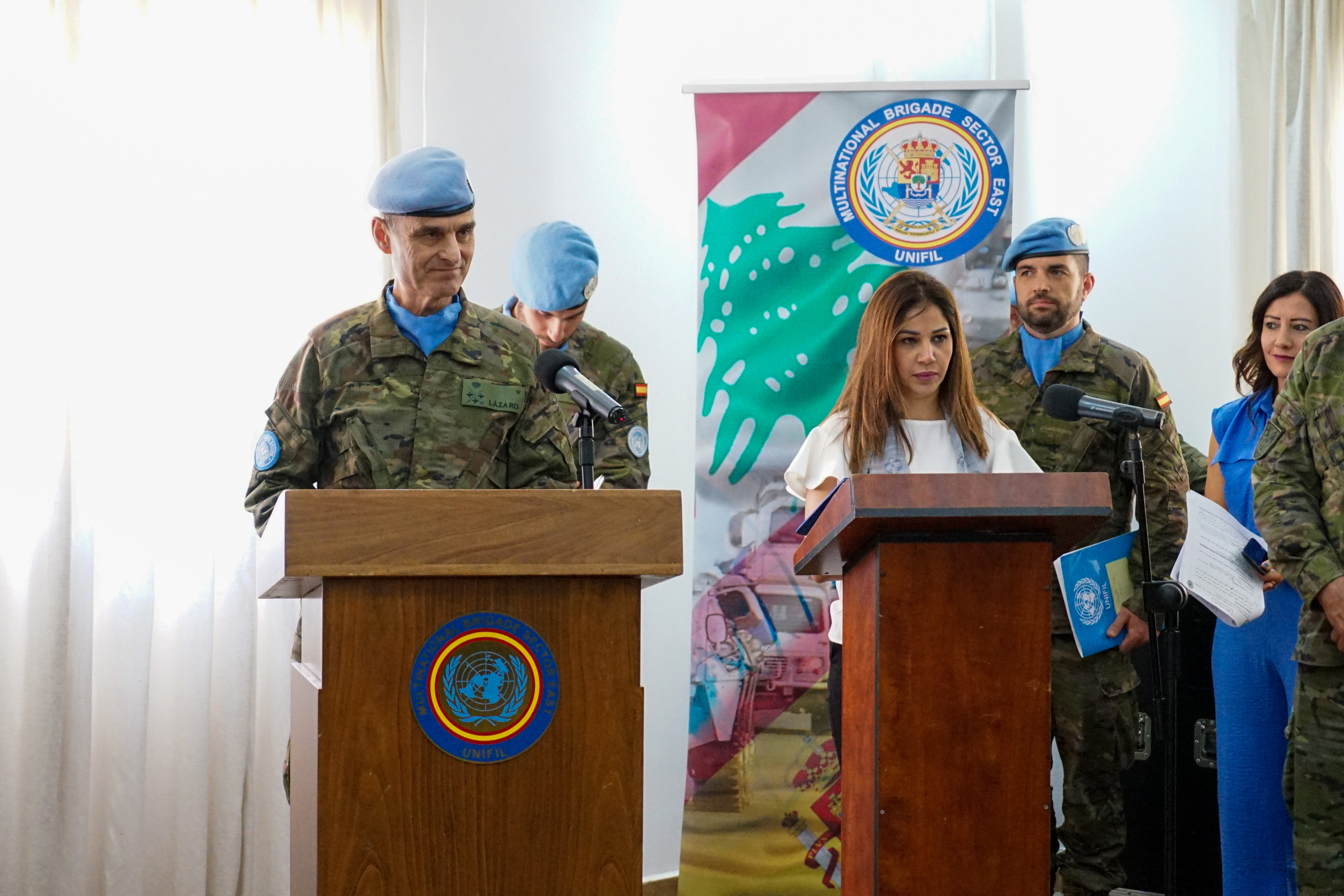
The 'Aragon' I Brigade takes command of UNIFIL Sector East
The 'Aragon' I Brigade takes command of UNIFIL Sector East
2024/05/24In Marjayoun, Lebanon
More information -
Spanish Brigade in Lebanon receives the ribbon of the “Real Orden de Isabel la Católica”
Spanish Brigade in Lebanon receives the ribbon of the “Real Orden de Isabel la Católica”
2024/01/24In Lebanon
More information -
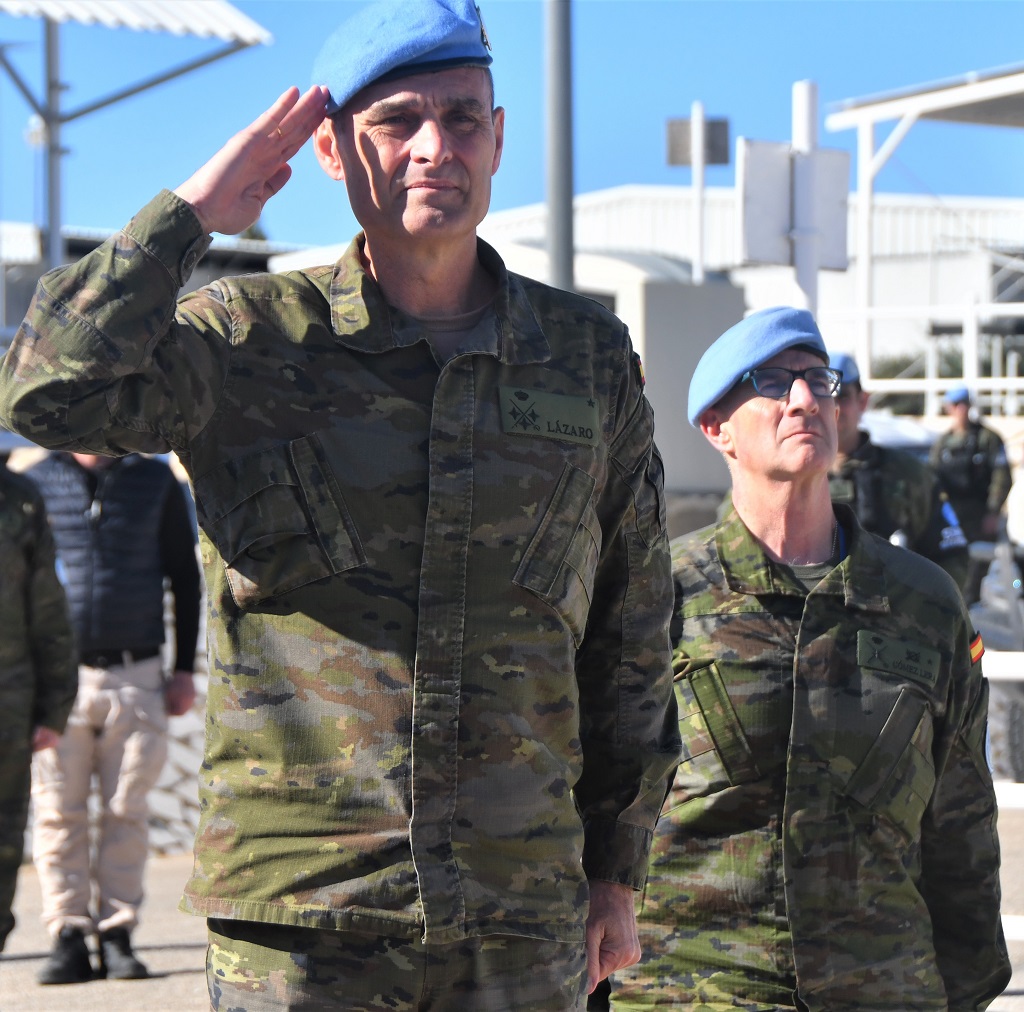
Head of the UNIFIL visits personnel deployed in Sector East
Head of the UNIFIL visits personnel deployed in Sector East
2023/11/30Marjayoun, Lebanon
More information -
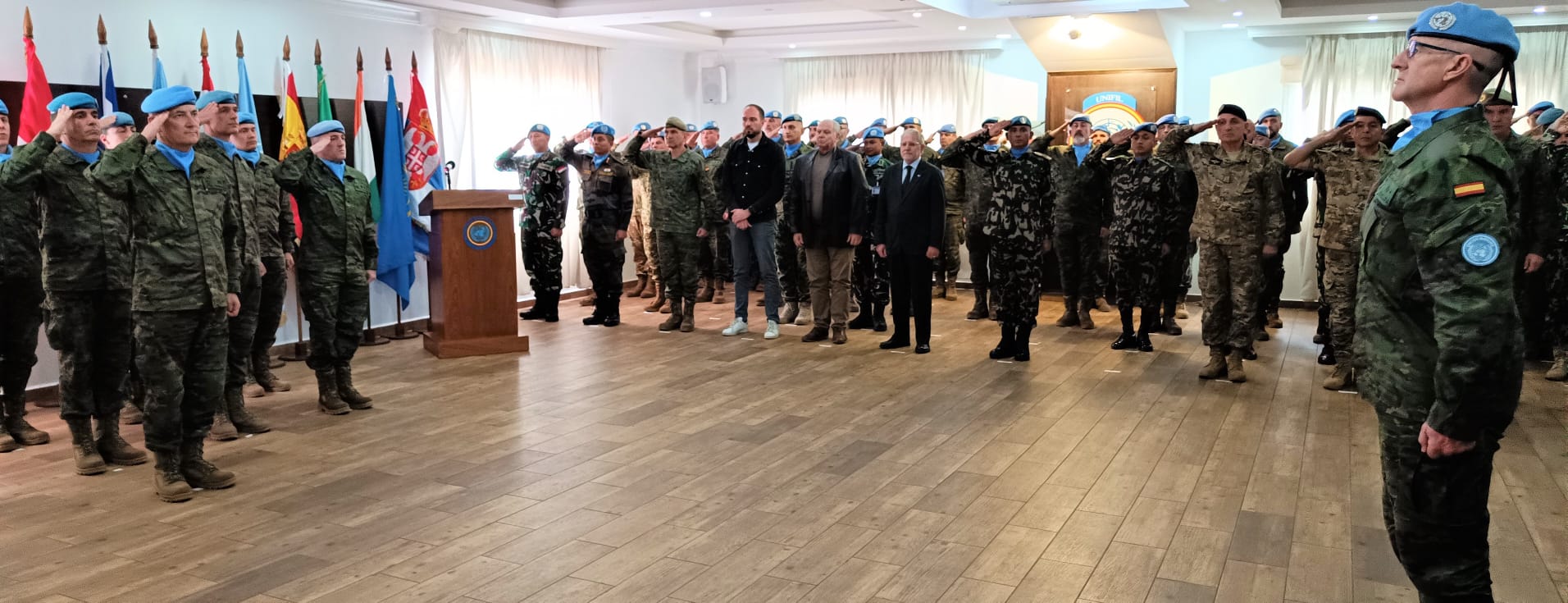
Extremadura XI Brigade takes command of operation Libre Hidalgo UNIFIL East sector
Extremadura XI Brigade takes command of operation Libre Hidalgo UNIFIL East sector
2023/11/24Marjayoun, Lebanon
More information


